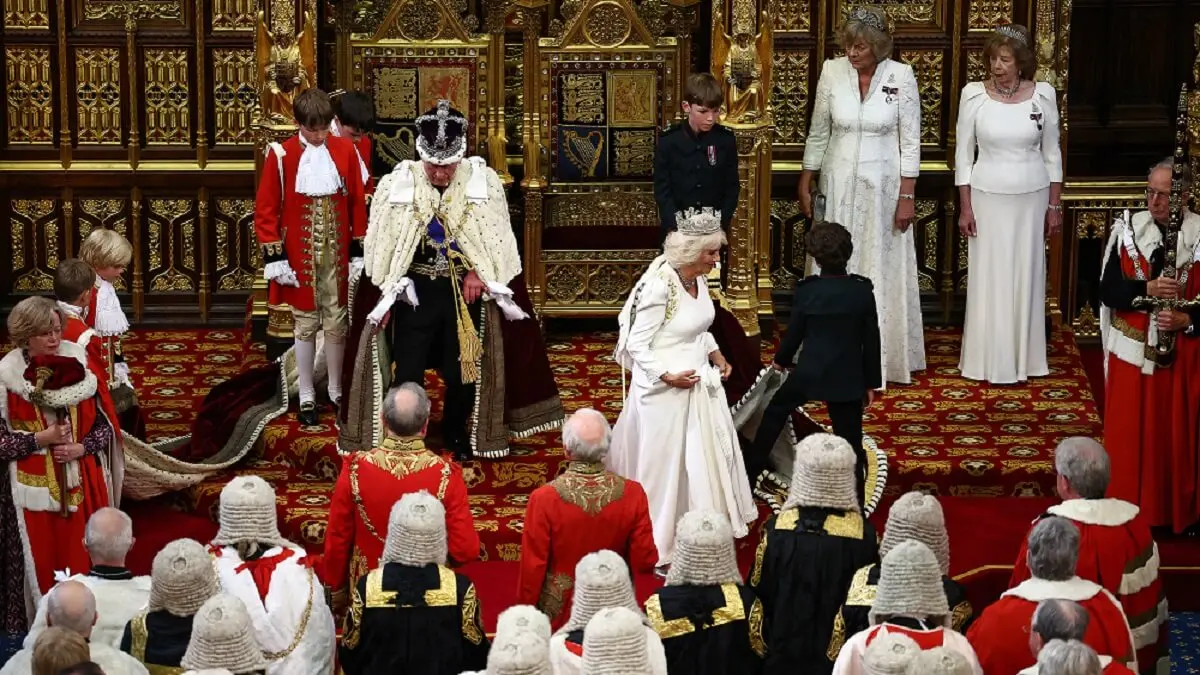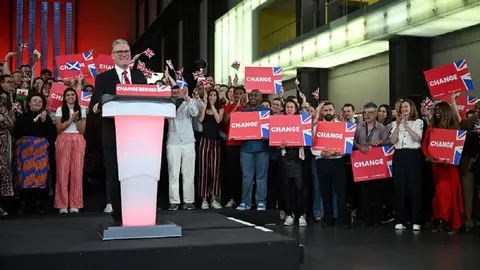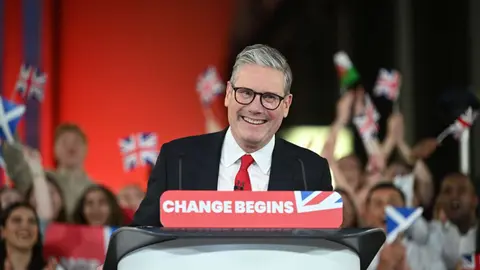The British Labour government will seek to improve relations with "European partners" and economic stability

The new British Labour government on Wednesday expressed its intention to "redefine" and "improve" its relations with "European partners" in the announcement of its programme for this term of office, read out in Parliament by Charles III in his "King's Speech".
In the text of the new government programme, delivered by the sovereign, as is tradition, the new Labour prime minister, Keir Starmer, 61, showed his desire to achieve economic stability, with budgets evaluated by an independent body, and his intention to fight "organised crime" in the area of irregular immigration.
"My government will seek to redefine relations with European partners and will work to improve trade and investment relations with the European Union," Starmer said in a speech read out by King Charles III, in which he reiterated the UK's "full support" for Ukraine.
In addition, the Labour Executive, which came to power after winning the 4 July election, ending 14 years of Conservative rule, announced its intention to abolish the hereditary right of around 100 members of the House of Lords.
The nearly 800 members of the House of Lords are not elected, unlike the Commons, but are appointed by the King and have advisory powers.
Border Security Command
In the "King's Speech", the British Labour government also confirmed its desire to create a new security force with the means available to counter-terrorism units to fight "organised crime" in the area of irregular immigration.
The creation of this new "border security command" aims to "reinforce" the fight against traffickers, who have allowed around 90,000 immigrants to reach the United Kingdom since 2022 by crossing the English Channel, which separates the coasts of France and England, in small boats.
After winning the lessons, Keir Starmer confirmed that he was abandoning the Conservatives' plan to deport irregular immigrants to Rwanda.
On Northern Ireland, the new government pledged to repeal a controversial law to end investigations and prosecutions for riot-related offences and grant immunity to people from all camps.
In keeping with tradition, the British King left Buckingham Palace in a gilded carriage for the solemn moment at the Westminster Parliament.
Keir Starmer's Labour government won the election following its shift to the centre, away from his predecessor as party leader, the more left-wing Jeremy Corbyn, after the failure of the 2019 election.
Starmer's victory was a landslide, with 411 contested out of 650 in the House of Commons, giving him an absolute majority over the previous prime minister, Conservative Rishi Sunak, who won 121.
Budget assessment
In the "King's Speech", Labour promised that the budgets it presents will be assessed by an independent body, the Office for Budget Responsibility (OBR), to ensure the country's "economic stability".
"Every significant change to taxes and spending will be subject to independent assessment," he added.
In late 2022, then Conservative prime minister Liz Truss caused panic in financial markets with unfunded tax cuts.
Among the main plans read out by King Charles III was to take up the Conservative plan to ban the sale of tobacco to people born after 2009.
Charles III, 75, who ascended the throne in September 2022, delivered his second "King's Speech", in Westminster, where some anti-monarchist protesters shouted "Not my king" outside parliament.
In May 2022, as Prince of Wales, he stood in for his mother, Elizabeth II, whose health was failing.
As per protocol, shortly before the King's arrival at Westminster the Royal Guards conducted the ritual inspection of Parliament's cellars for explosives, a legacy of the failed attempt by Catholics to blow up the building in 1605.
In keeping with tradition, Labour MP Samantha Dixon was symbolically held hostage at Buckingham Palace to ensure "the safe return of the King" to his residence.










